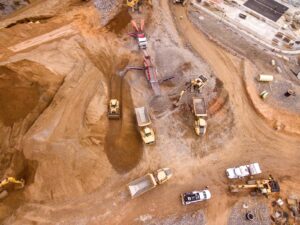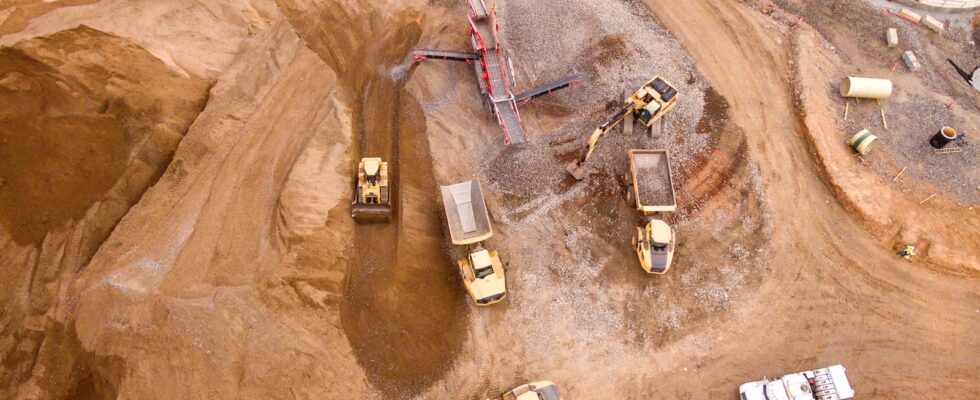 The mining industry is usually considered one of the biggest carbon generators. According to McKinsey, the sector is responsible for 4 to 7 per cent of greenhouse gas emissions globally. However, the world needs mining more than ever to meet 2050 Net Zero goals. To build cleaner energy solutions such as solar, wind and water energy, we’ll need to mine two times more copper over the next decade, from 25 million metric tons today to about 50 million metric tons by 2035, to deploy technologies critical to achieving net zero goals by 2050, according to S&P Global.
The mining industry is usually considered one of the biggest carbon generators. According to McKinsey, the sector is responsible for 4 to 7 per cent of greenhouse gas emissions globally. However, the world needs mining more than ever to meet 2050 Net Zero goals. To build cleaner energy solutions such as solar, wind and water energy, we’ll need to mine two times more copper over the next decade, from 25 million metric tons today to about 50 million metric tons by 2035, to deploy technologies critical to achieving net zero goals by 2050, according to S&P Global.
As the International Energy Association notes, clean energy systems need different resources from hydrocarbon-fuelled systems: “Solar photovoltaic (PV) plants, wind farms and electric vehicles (EVs) generally require more minerals to build than their fossil fuel-based counterparts.”
Making this even more challenging is the depletion of high-quality mineral reserves. A larger footprint will be required to get the same results from lower-grade reserves. At the same time, the mining industry is committing to new sustainability requirements.
In 2020-21, Australia’s mining sector, including coal, consumed 365 petajoules (PJ) of energy, with 229 PJ being from non-coal mining. The average mine site, with a fleet size of approximately 40 trucks, currently contributes 150,000 tonnes of carbon per year from diesel equipment.
Under Net Zero Australia, sites must reduce their emissions by 4.9% to reach a 30% reduction target by 2030. Mining companies have committed to cut emissions by 50% to 100% over the next 10-20 years. This will involve finding alternatives to existing diesel equipment.
Many operators believe the pathway to haul fleet decarbonisation will be via battery or hydrogen equipment options. But these technologies are yet to be proven, developed, commercialised, and built at scale. There is a clear risk that these technologies will run late: they’re unlikely to be available at scale before 2030.
Miners can make cash flow positive and achieve near-term progress on decarbonisation by improving the efficiency of mine sites. Open-pit mining is an enormous excavation project involving moving millions of tonnes of rock. The faster the circuit of trucks moves; the more money is earned. Operators need to know how long it takes for each truck to be loaded and how quickly the material is transported while avoiding traffic jams and ensuring everyone drives safely.
Operational data, such as sensor data from mobile equipment data busses (or networks), can be collected and analysed to support business and productivity optimisation. Just as Formula One drivers refine their performance through the feedback they receive from laps, so mining operators can pick the optimal gears and speed for each section of road they travel on.
Business improvement experts and data analysts can work with mine sites to ensure sustainable disciplines are implemented to maintain improvements, hardwiring data to the operating system of the mine. At an individual level, each operator can take accountability for their impact on a mine’s productivity (revenue and cost) and how they contribute to the world’s carbon footprint with parameters in their control, speed, gears, and revolutions per minute (RPM). Personalised scorecards and automated improvement coaching rewards positive behaviour. This style of operator gamification ensures improvements become habitual.
By leveraging this data, technology can help the average open pit mine reduce its carbon Scope 1 footprint by up to 10-15%. This means a mine could reduce its carbon footprint by about 15-20,000 tonnes of CO2.
The world needs mining to supply the metals of net zero transition. But the industry needs to improve productivity and efficiency. Leveraging data can make mining safer and more efficient, accelerating sustainable practices of humanity’s scarce resources.
By Tom Cawley, Executive Chair, MaxMine
This article was first published by Eco Voice
